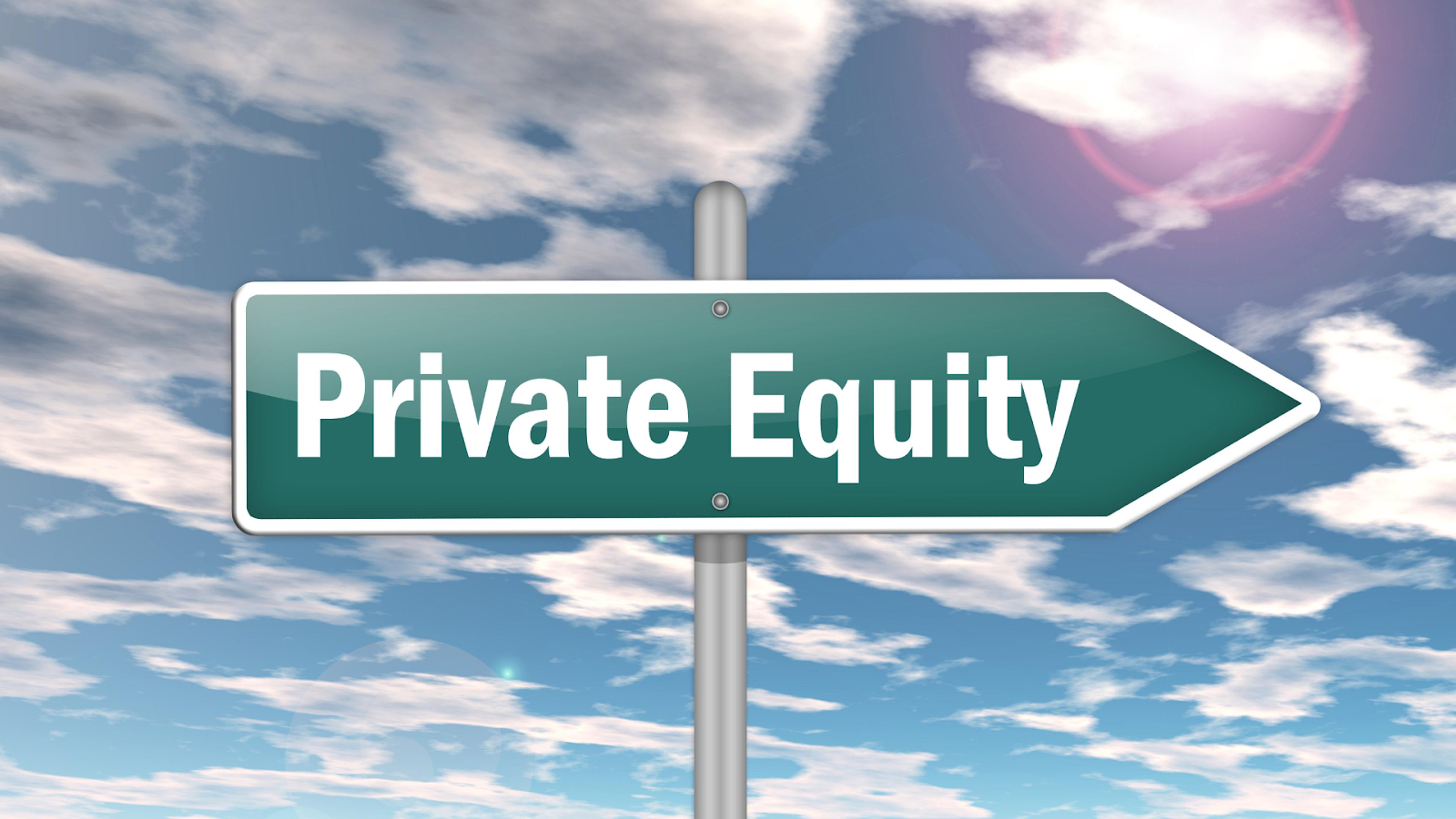How to Ace Your Blackstone Interview
The ultimate guide to Blackstone interviews with expert tips, common questions, an overview of the interview rounds, and much more.
Posted January 27, 2026

Join a free event
Learn from top coaches and industry experts in live, interactive sessions you can join for free.
Table of Contents
If you're gearing up for a Blackstone PE interview, you already know the stakes are high. Whether you're targeting a role as a summer analyst, associate, or experienced hire, the Blackstone interview process is one of the most competitive in the private equity industry. But with the right preparation, strategic approach, and mindset, you can outperform even the most qualified candidates. This guide breaks down the entire interview process, includes real tips from successful applicants, and provides the expert tips and frameworks you need to walk in confident—and walk out with an offer.
Inside the Blackstone Interview Process
Blackstone’s interview process is engineered to mirror the demands of the job—and only the most prepared candidates make it through. Each stage is a deliberate filter designed to assess your technical proficiency, analytical rigor, strategic thinking, and alignment with the firm’s high-performance culture. While details vary by role and division, the process typically unfolds as follows:
- HireVue or asynchronous screens to evaluate presence, clarity, and baseline cultural alignment
- Behavioral interviews focused on how you collaborate under pressure, manage ambiguity, and demonstrate leadership potential
- Technical interviews that dive deep into valuation, financial modeling, LBO mechanics, and real-time market application
- A Superday that simulates real deal dynamics—think multi-round panels, data-driven case studies, market analysis, and team-based decision-making under time pressure
Top candidates don’t just answer questions; they bring clarity, conviction, and composure at every stage.
Interview Rounds
The number and type of interview rounds will vary based on the specific role, the location, and the Blackstone division you’re applying to. Generally, the Blackstone PE interview process includes several rounds, which may involve a combination of HireVue assessments, HR screenings, phone and video interviews, and an in-person or virtual Superday. Each stage assesses different competencies, from technical and analytical skills to cultural fit.
Here’s a look at the typical rounds by position:
Summer Analysts
Summer analyst candidates typically begin with a Pymetrics assessment and HireVue screen, tools designed to evaluate behavioral traits, cognitive skills, and cultural alignment. These are followed by one to two rounds of interviews that focus primarily on behavioral questions, though you should be prepared for basic technicals related to market trends or valuation. Select candidates from target schools may be invited to a Superday, where they’ll face multiple interviews in quick succession. At this level, Blackstone is looking for signs of intellectual curiosity, coachability, and long-term potential. Your enthusiasm and willingness to learn often carry more weight than deep technical expertise.
Read: Blackstone Pymetrics: Interview Questions & Tips
Analysts
The analyst interview process is significantly more rigorous. It typically begins with a HireVue or recruiter screen and moves into several rounds covering both technical and behavioral topics. Expect in-depth questions on financial modeling, valuation techniques, and the private equity landscape, along with a strong emphasis on communication skills and culture fit. In the final stage, most candidates complete a case study or investment recommendation, often under time pressure. You’ll be evaluated on your ability to structure your thinking, articulate investment rationale, and show that you understand both the micro and macro factors affecting investment opportunities.
Associates
For associates, the process is built to simulate the demands of the job, complex, high-stakes, and high-pressure. It begins with HR and recruiter screens, then moves into multiple rounds of technical interviews and real-time or take-home case studies. The Superday, often lasting 4–5 hours, includes scenario-based presentations and panel interviews with senior professionals. You’ll be expected to evaluate a company’s viability, dissect financials, identify risks, and defend your recommendation with clarity and conviction. This is where many falter, not because of weak models, but because they lack strategic insight, executive presence, or the ability to think critically when the structure is ambiguous.
Expert Insight: As one Reddit candidate put it, “They gave me a deck of financials, 45 minutes, and told me to build a thesis and put it on a slide.” That’s not a test of facts—it’s a test of focus, logic, and leadership judgment.
Read: Private Equity Roles: The Different Career Paths
Types of Blackstone Interview Questions
Throughout the interview rounds, Blackstone evaluates candidates through a diverse range of questions to assess both technical acumen and cultural compatibility. Here’s a look at the primary question types:
Technical Questions
These questions gauge your proficiency in financial analysis, valuation techniques, financial modeling, and quantitative analysis. For example, you might be asked to walk through a discounted cash flow (DCF) model or explain the implications of different valuation techniques like comparable company analysis versus precedent transactions scenario analysis. Additionally, accuracy, reliability, and ethical standards in handling financial data are crucial in financial reporting.
Common technical topics include building or analyzing leveraged buyout (LBO) models, assessing future cash flows, calculating present value, and understanding the impact of market dynamics on investment decisions.
Behavioral Questions
Blackstone places high importance on cultural fit, and behavioral questions allow interviewers to assess how you handle collaboration, tight deadlines, and high-stakes decision-making. Typical questions might include, “Describe a time when you had to meet a tight deadline,” or “Tell me about a time you had to make a significant decision under pressure.” Use the STAR method (Situation, Task, Action, Result) to answer these questions, structuring your responses to highlight your analytical thinking, adaptability, and results-driven approach.
Case Study and Situational Questions
Case studies simulate real-world scenarios, challenging you to apply your skills in data analysis and strategic value assessment. You might be given a hypothetical company and asked to evaluate its investment potential by analyzing its financial performance or identifying potential risks in the market. Situational questions may focus on handling complex projects through successful negotiation or mitigating operational risks. For instance, you could be asked, “How would you handle a disagreement with a senior partner on a high-stakes deal?”
Industry-Specific Questions
Interviewers assess your knowledge of the private equity industry, asking questions about industry trends, regulatory changes, industry regulations, and market position. You should be familiar with Blackstone’s role in private equity and the firm’s investment strategies, from traditional LBOs to sustainable investing in sectors like renewable energy and technology.
Example questions include, “What are the latest trends in private equity?” or, “How do you think rising interest rates impact Blackstone’s investment strategy?”
How to Align with Blackstone’s Values
As you prepare for your interview at Blackstone, it’s essential to remember that showcasing your technical skills is just one part of the equation. Equally important is demonstrating how you align with the firm’s culture and understanding of the industry landscape. Blackstone prides itself on fostering a diverse and inclusive environment where collaboration and adaptability thrive.
Share your experiences, and be specific: Be ready to share personal experiences that highlight your contributions to team dynamics or your interactions with diverse groups. You might be asked questions like, “How have you handled working in a culturally diverse team?” or “What role do you play in fostering an inclusive workplace?” When you answer, think of specific examples that reflect your commitment to these values. This is your chance to show that you’re not just a candidate with skills but also someone who genuinely cares about building positive relationships in the workplace.
Understand market and industry trends: In addition to cultural fit, having a solid grasp of industry trends is crucial. Take some time to familiarize yourself with key topics such as sustainable investing, technological advancements, and the latest regulatory changes. Being able to discuss how these factors influence Blackstone’s investment strategies will demonstrate your industry acumen and readiness to engage in meaningful conversations.
Stand out as a well-rounded candidate: Ultimately, blending cultural awareness with industry knowledge will help you stand out as a well-rounded candidate. It shows that you’re prepared not only to excel in your role but also to contribute positively to Blackstone’s collaborative spirit. By highlighting both your interpersonal skills and industry insights, you’ll present yourself as a candidate who is not just ready to work at Blackstone but is excited to be a part of its dynamic culture.
Top Blackstone Interview Tips
1. Research the company, team, and role beforehand
Before you even get to the interview stage, it's essential to do your research on Blackstone and the specific role you are applying for. Make sure you understand the company's history, culture, and mission, as well as the key players and recent deals Blackstone has been involved in. You should also familiarize yourself with the specific job description and requirements for the position you are applying for, as this will help you tailor your responses to the interview questions.
Here are some quick links you may find helpful:
- About the Firm
- Blackstone Private Equity Homepage
- Blackstone Insights (News & Stories)
- Blackstone Portfolio Operations
- Blackstone Tactical Opportunities
It's also a good idea to research the interviewer(s) if possible. Look up their background and experience, as well as any recent publications or projects they have been involved in. This can help you establish a connection with them during the interview and show that you are genuinely interested in the project scope, company, and role.
Finally, if you are able, talk to people who are on or have previously been on the project management team you're interviewing for. This will give you insight into the work and culture that will help you sound more informed and prepare you to ask better questions.
2. Demonstrate knowledge of the private equity industry at large
To impress your Blackstone interviewers, you need to demonstrate that you are up-to-date on the latest trends and developments in the private equity industry. This could include topics such as ESG (environmental, social, and governance) investing, the rise of technology-focused funds, or changes in regulatory frameworks - it will depend on the team and investment portfolio you're hoping to join.
Remember, at the end of the day, companies are looking to bring someone on who is additive to the team. In your interview, try and show areas where you, specifically, would bring value to the company. Think about how you, personally, could benefit Blackstone and show that in your interview.
It is also important to showcase your understanding of how these trends and developments may impact the private equity industry in the future. For example, you could discuss how the increasing focus on ESG investing by leading investment firms may lead to more sustainable and socially responsible investment strategies, or how the rise of technology-focused funds may lead to greater innovation and disruption in traditional industries.
3. Show your value through industry knowledge
When preparing for your Blackstone interview, it’s vital to articulate how you can leverage your industry knowledge to add value. This not only demonstrates your expertise but also showcases your understanding of the private equity landscape. Here’s how you can effectively convey this during your discussions:
Start by thinking about specific trends that resonate with Blackstone’s investment philosophy. For instance, consider how emerging technologies or shifts in consumer behavior could create opportunities. Share examples of how you have applied data-driven decision-making in the past to evaluate future cash flows or assess risk management strategies. Your insights into these areas will help illustrate your potential contributions to Blackstone’s investment portfolio.
Additionally, it’s important to acknowledge Blackstone’s stature in the private equity world. Reflect on your own experiences leading investment firms and identify moments where your skills in financial analysis or market positioning played a critical role. How could these skills help the firm navigate competitive landscapes? By aligning your expertise with Blackstone’s objectives, you can paint a clear picture of your strategic value.
Lastly, don’t shy away from discussing specific scenarios that highlight your understanding of industry trends. Think about times when your insights led to operational efficiencies or strategic advantages. Sharing these experiences not only humanizes your interview but also reinforces your capacity to contribute meaningfully to Blackstone’s future success.
By preparing in this manner, you’ll be well-equipped to demonstrate how your unique background and perspective can add real value to the firm.
4. Critically and strategically think about industry trends
Highlighting your analytical approach, critical thinking, and your understanding of the implications of industry trends shows interviewers that you’re both knowledgeable and forward-thinking. Consider these strategies:
ESG and Future Investment Potential - ESG’s impact on investment strategies can lead to profitable, sustainable investments, but it also requires in-depth due diligence to ensure compliance and risk mitigation. Discuss how you would apply thorough analysis and scenario planning to assess ESG-driven investment opportunities, ensuring a balance between growth and social responsibility.
Technology as a Growth Driver - The tech sector’s growth has revolutionized investment, yet it brings unique risks such as cybersecurity concerns or market volatility. Address how technology-focused funds influence your decision-making process when evaluating an investment's potential or navigating market dynamics within the private equity landscape.
By demonstrating your ability to think critically about industry trends and their various potential risks and implications, you can show Blackstone interviewers that you’re prepared not only to understand the current market but also to adapt to and strategize for its future. This proactive approach aligns with Blackstone’s reputation as a forward-looking, innovative leader in private equity.
For some good places to start learning about the industry, check out: The Best Finance Newsletters & Podcasts to Subscribe To
5. Tailor your interview responses and resume to the specific role
When companies like Blackstone are hiring, they're usually looking to fill a very specific role. The better you understand who they're looking for, the more prepared you'll be to make the case that you are that person. There are a couple of ways that you can do this:
- Analyze the Job Description: Pay close attention to both the hard and soft skills mentioned. For example, do they prioritize “analytical skills” or “collaborative mindset”? This helps you tailor your answers to align with Blackstone’s needs in specific areas like financial modeling, quantitative analysis, or teamwork.
- Speak with Team Members (if possible): Reaching out to current or former employees, even through LinkedIn, can provide invaluable insights. Understand what challenges the role has historically faced, what skills are essential, and where the team believes a new hire could “add value.” Discussing how previous hires have succeeded (or struggled) can help you understand what Blackstone is seeking.
- Leverage Platforms Like Glassdoor and LinkedIn: While online reviews and insights can vary, they often reveal trends about team expectations, the interview process, and work culture. This research can add perspective on the firm’s expectations, such as “ability to perform under tight deadlines” or “proficiency in complex financial models.” Use this information as a lens through which to evaluate your own experiences and highlight skills that align with Blackstone’s requirements.
- Craft and Practice Tailored Responses: Once you understand what Blackstone is looking for, prepare anecdotes that highlight relevant achievements, focusing on the specific technical and soft skills the team values. For example, if the role emphasizes strategic thinking and collaboration, practice examples of when you’ve successfully led cross-functional projects or contributed to complex deal analyses.
Once you've done these things, you'll have a much better understanding of not only technical skills and what the team wants but what they need in this new hire. Then, you can prepare for the interview and practice answers/anecdotes that demonstrate those skills and other qualifications.
Read: An Expert’s Guide to Resumes: Five Tips to Make You Stand Out and Private Equity Resume Guide (With Template & Example)
Looking to Ace your Blackstone Interview?
Work 1-on-1 with former Blackstone professionals who know exactly how the interview process works and how candidates get filtered out.
- Kenny J.: Former Associate at Blackstone, PE Investor at KKR
- Lucy S.: Former Senior Associate at Blackstone, Former Consultant at BCG
6. Make sure you've mastered the fundamentals
You can do everything else in this article perfectly, but if you don't know the fundamentals, the game is lost before it's begun. Here is a general list of some of the things you should be comfortable with for jobs in private equity; take this list and adapt it to the team and role you're interviewing for.
- Financial Modeling:
- Three-statement models
- Leveraged Buyout (LBO) models
- Merger and Acquisition (M&A) models
- Discounted Cash Flow (DCF) models
- Valuation Techniques:
- Discounted Cash Flow (DCF) analysis
- Precedent transaction analysis
- Comparable company analysis (Comps)
- Sum-of-the-parts valuation
- Enterprise value vs. Equity value calculations
- Financial Statement Analysis:
- Understanding of the income statement, balance sheet, and cash flow statement
- Key financial ratios and their implications
- Deal Structuring:
- Familiarity with different types of debt instruments
- Equity financing considerations
- Minority vs. majority investments
- Industry Metrics and KPIs:
- EBITDA, EBIT, and other relevant metrics
- Sector-specific key performance indicators
- Due Diligence Process:
- Operational
- Financial
- Legal
- Market and commercial
- Market Analysis:
- Understanding macroeconomic factors
- Analyzing market trends and industry dynamics
- Investment Thesis Development:
- Ability to identify and articulate value-creation opportunities
- Capital Structure:
- Understanding of how companies are financed between debt and equity
- Exit Strategies:
- Initial Public Offerings (IPOs)
- Sales to strategic buyers
- Secondary sales to other private equity firms
- Private Equity Terms and Concepts:
- IRR (Internal Rate of Return)
- Carried interest
- Hurdle rate
- Clawback provisions
7. Follow the STAR format, lightly
The "STAR Method" for interviews simply involves framing your answers around a (1) Situation, (2) Task, (3) Action, and (4) Result. This can be a helpful framework for certain types of questions. Don't try to force it where it doesn't work, but where it does, use it to help you stay structured in your responses. It's also a good reminder of what parts of an anecdote are most important:
Situation: Start by briefly setting up the context so the interviewer understands the background of your example.
Task: Describe the specific responsibility or objective you had within that situation.
Action: Focus on the intentional actions you took. Highlight decisions you made strategically to achieve the objective.
Result: Conclude with the outcome, ideally a quantifiable result or key learning that demonstrates your success or growth.
Read: How to Nail “Tell Me About a Time…” Interview Questions
8. Follow proper etiquette
In short, do the things you're supposed to do outside of simply having great answers. Blackstone is not hiring an isolated brain; they're hiring a person. Not only will they have to work with you, but they'll likely have to see you every day. In consulting, this is often referred to as the "airport test." Could your interviewer sit in an airport with you for eight hours and not want to kill you at the end of it? If yes, you passed.
Make sure to do these things throughout the interview process.
Dress professionally and appropriately – First impressions are significant, especially in industries like private equity, where client-facing roles require a polished look. Choose attire that conveys professionalism and aligns with Blackstone’s reputation. Typically, this means business formal attire, but consider researching Blackstone’s office culture or asking HR for guidance if you're unsure. Dressing the part signals that you respect the firm's standards and understand the importance of maintaining a professional image in high-stakes environments.
Communicate proactively and courteously (and mirror the behavior/communication of your interviewer) – Professional communication is key, beginning with timely responses to scheduled emails. Prompt, polite replies show your reliability and respect for the interviewer’s time. After your interview, follow up with a personalized thank-you email, highlighting specific details from the conversation to reflect your genuine interest. For instance, mention a topic you discussed or an insight the interviewer shared, which demonstrates attentiveness and enthusiasm for the role. Thoughtful communication can set you apart as detail-oriented and considerate, reinforcing your professionalism.
Ask thoughtful questions – Prepare insightful questions that go beyond basic information found online. Avoid asking questions with answers readily available on the company’s website, as it may give the impression of a lack of research. Instead, focus on queries that show your strategic thinking and genuine interest in Blackstone’s culture, growth opportunities, or recent initiatives. This not only leaves a strong impression but also shows that you’re committed to understanding how you can contribute to the firm’s mission and values.
Exhibit positive body language and engagement – Nonverbal cues matter. Practice good posture, maintain eye contact, and convey confidence without appearing overly rigid. Again, matching the interviewer’s demeanor helps establish rapport if they’re formal, and maintain professionalism; if they’re more relaxed, feel free to mirror that while remaining authentic. Confident body language shows that you’re prepared and comfortable under pressure, which is critical in client-focused roles at a firm like Blackstone.
9. Practice, practice, practice
The best way to come off as polished and prepared is to practice; ideally, in an environment that simulates the anxiety of the real thing with someone who has the skills and qualifications to give you good feedback. That's not always possible, so here are some steps you can take regardless.
Brainstorm potential stories to use in behavioral/situational questions like, "Tell me a time when...". Simply get out a pad of paper and brain-dump some of the things that you did in your last role(s) that you remember being impactful or that benefited the company at large. When writing, it may be helpful to organize them around the STAR method mentioned above.
Once you have some top stories, practice answering questions out loud by yourself. Don't memorize a script - rather, have a couple of key points that you want to hit for each. Then, you'll be able to come off as less rehearsed and more prepared.
Do a mock interview. Again, if you can do it with a professional, that is ideal. If not, even a friend is better than nothing! Dress up, do it in a new location, and otherwise try to replicate the "real" interview.
If you would like to prepare with someone who has experience coaching people through private equity interviews and financial models, here are some packages we recommend:
- Ace Your Private Equity Interview: Case Prep, Financial Modeling - with Ed Z., Managing Partner at Search Fund, Former PE Vice President at HIG Capital and Associate at Gauge Capital, Wharton MBA
- Crack the PE Case Study Intensive 3-Day Prep - with Asha T., HBS MBA, Senior Associate at Apax, Former Associate at JP Morgan
- How to Nail Your PE Interviews - with Ashley B., Stanford GSB MBA, Former VP at Altamont Capital Partners, Investor
To further enhance your interview preparation and understanding of the industry, consider exploring the following articles:
- Best Questions to Ask at the End of an Interview
- The Different Types of Buy-Side Firms–and How to Choose One
Common Blackstone Interview Questions
Preparing for Blackstone’s private equity interviews requires a mix of technical knowledge, strong communication skills, and strategic thinking. By anticipating common questions, you’ll be ready to tackle both straightforward queries and unexpected curveballs. Here’s a comprehensive guide to the types of questions you may encounter:
Behavioral Questions
These reflect recent interviews and go beyond the basics to assess leadership potential, maturity, and cultural alignment:
- Walk me through your resume, but highlight the decisions behind each move
- Tell me about a time you failed—what did you learn, and how did you adapt?
- Describe a time when you took ownership of a high-stakes project
- What’s the most difficult feedback you’ve ever received, and how did you respond?
- How have you navigated a conflict with a team member or manager?
- Tell me about a time when you had to lead without formal authority
- How do you handle ambiguity in fast-paced or under-defined situations?
- What motivates you outside of your career?
- Which of our portfolio companies would you invest in today, and why?
- What’s one risk you’ve taken professionally that paid off—or didn’t?
- Tell me about a time when you had to challenge consensus or groupthink
- What do you think makes someone successful at Blackstone?
- Why private equity, and why Blackstone specifically?
- How do you stay sharp on industry trends or market developments?
- What do you think is the biggest challenge facing our firm right now?
How to Prepare: Use the STAR method (Situation, Task, Action, Result) to structure your answers. Emphasize how you manage pressure, collaborate effectively, and maintain a results-driven approach, all qualities Blackstone values.
Technical Questions
Recent candidates report highly practical, applied technicals, not brainteasers, but real, deal-relevant work. Questions may vary by role, but common themes include:
- Walk me through a DCF and explain how you’d stress test it in a recession scenario
- How do you calculate and interpret IRR and MOIC in a buyout model?
- What’s the relationship between enterprise value and equity value, and why does it matter in PE?
- If EBITDA is flat but net income is rising, what’s happening in the capital structure?
- Build an LBO model from scratch—what are the key assumptions and sensitivities?
- How does a rise in interest rates impact valuations in today’s environment?
- What are the pros and cons of using debt to finance an acquisition?
- Compare EV/EBITDA vs. P/E multiples—when would you use each?
- How would you evaluate a distressed company as a potential acquisition target?
- What are the main risks in this type of deal, and how would you diligence them?
- Describe how you’d build conviction around an investment opportunity in a sector you’ve never worked in
- How do you calculate WACC, and what are the common pitfalls?
- What’s your framework for comparing two similar companies with very different capital structures?
How to Prepare: Make sure you understand how to build and interpret financial models and be ready to discuss the implications of financial ratios and metrics like IRR (Internal Rate of Return) and WACC (Weighted Average Cost of Capital). Familiarity with these concepts and software tools will showcase your analytical skills and your ability to assess investment opportunities critically.
Situational Questions
Situational questions test your problem-solving skills and judgment in real-world scenarios. You may be asked how you’d respond to an underperforming portfolio company or deal with conflicts within a team. Examples include:
- Tell me about a time you made a high-stakes decision with incomplete information.
- You realize there’s an error in a model you submitted to senior leadership. What do you do?
- What would you do if a portfolio company CEO refused to implement a value-creation initiative you strongly believed in?
- A team member isn’t pulling their weight, and the deadline is close. How do you handle it?
- What if you uncover questionable accounting practices during due diligence—what’s your next step?
- How would you evaluate a company in a sector you have no prior experience in, under time pressure?
- You’re asked to pitch an investment with minimal prep time. How do you structure your thinking and deliver confidently?
- You disagree with a partner’s view on a deal. How do you push back effectively?
How to Prepare: Think critically about how you’d handle challenging situations with both strategic insight and cultural alignment. Highlight your ability to prioritize tasks, collaborate with others, and adapt to complex situations, showing that you’re both a strategic thinker and a team player.
Case Study Questions
Case studies require you to analyze hypothetical investment scenarios, simulate real decisions, show financial regulations, and demonstrate strategic value assessment. Common types of case questions include:
- Here’s a data pack and CIM. You have 45 minutes. Build an investment thesis and present 1 slide.
- This company has declining EBITDA but a strong market share. Would you invest, and why?
- Blackstone just invested in [real company]. Walk me through the thesis, what you liked, and one thing you'd challenge.
- You’re analyzing a logistics startup with heavy capex and low margins. What key metrics do you focus on?
- Assume you’re tasked with exiting a mature portfolio company in 18 months. What are your value-creation priorities before exit?
- A competitor is entering the market. What would you advise the management team of our portfolio company?
- You’re pitching a renewable energy deal, but it underperforms on IRR targets. How would you justify the investment?
How to Prepare: To excel, practice structuring your case analysis around key factors like market trends, financial performance, potential risks, and exit strategies. Discuss your investment analysis and rationale, demonstrating how you would add value to Blackstone’s investment process.
How to Answer the “Why Blackstone?” Question Like a Top Candidate
Few questions are more revealing or more make-or-break than “Why do you want to work at Blackstone?” It may sound simple, but your answer is a window into your mindset, values, and long-term intent. The best responses blend genuine motivation, deep understanding of the firm, and a clear, personal connection to Blackstone’s mission.
Start with What Genuinely Draws You In
Before crafting your answer, reflect on your real motivation. Why Blackstone specifically, not just “why private equity”? What is it about this firm’s approach, platform, or culture that resonates with you? Surface-level answers like “it’s a top firm” won’t cut it. Speak to what makes Blackstone feel different to you. The most compelling responses come from candidates who have taken the time to figure out where their personal story intersects with the firm’s.
Show You Align with Their Values Backed by Experience
Blackstone is values-driven, and your response should reflect that. Think about moments in your own career when you’ve embodied the principles they prize: ownership, excellence, integrity, and innovation. Maybe you led a team through ambiguity. Maybe you delivered under pressure or made a hard call that prioritized long-term impact over short-term ease. Sharing these stories subtly proves cultural alignment without having to claim it outright.
Speak to Growth and Be Specific About It
Use your answer to show that you’re here to grow, not coast. Talk about the kind of investor, operator, or professional you want to become and how you see Blackstone accelerating that path. Whether it's deepening your sector expertise, working on global cross-functional deals, or learning directly from partners, make it specific and personal. “Learning from the best” is fine. Knowing exactly what you hope to learn and why it matters is better.
Prove You’ve Done the Work
One of the easiest ways to differentiate yourself is by demonstrating depth. Don’t just say you’re impressed by their work. Reference a deal, strategy, or insight that actually inspired you. Have an opinion. Bring in something they’ve published, a specific investment theme, or a portfolio company you admire. This shows you’re not just reading the website, you’re engaging like someone who already thinks like an investor.
Articulate the Long-Term Fit
A great “Why Blackstone?” answer doesn’t just look backward, it looks forward. Share how you hope to grow with the firm. What kind of role do you see yourself playing in five or ten years? How do you want to contribute to Blackstone’s evolution? Showing that you’re thinking like a long-term teammate, not just a candidate, sends a strong signal of commitment and maturity.
Talk to People, It Will Transform Your Answer
The most powerful responses often come from conversations, not Google. Reach out to current or former Blackstone employees, especially those in the team or role you're applying for. Ask what surprised them, what challenged them, and how they’ve grown. These real insights will sharpen your answer and give you the kind of credibility that no job post or news article can deliver.
Expert Tip: The best way to have a powerful answer to “Why Blackstone?” is to talk to people! Talk to current and former Blackstone employees in the position and on the team you’re hiring for. What did they like about their experience? How did they feel like they had grown? What did they wish they knew when interviewing?
Read: How to Answer the "Why Blackstone?" Interview Question (Tips & Examples)
Nail Your Blackstone Interview With the Help of an Expert
Having someone who has gone through the hiring process before on your side is a game-changer. We highly recommend reaching out to these coaches for a free intro call to discuss how they can help you prepare for your interview! Top private equity coaches have successfully gone through it themselves and can offer personalized guidance, actionable tips, and targeted practice to strengthen your application. Let’s get you on the path to landing your dream role in private equity! Browse PE coaches here.
See: The 10 Best Private Equity Career Coaches for Interview Prep & Training
Read these next:
- 50+ Most Common PE Interview Questions & Answers (Behavioral/Technical)
- The 10 Best Questions to Ask Your Interviewer in a Private Equity Interview
- Top Private Equity Internship Programs (and How to Stand Out)
- Finance Internships for College & High School Students
- Intro to Financial Modeling – With Examples
FAQs
How hard is it to get an interview at Blackstone?
- It’s extremely competitive, especially for on-cycle roles or summer analyst programs. You’ll need a top resume, strong referrals (ideally), and evidence that you’ve done deep prep beyond just knowing the basics.
Do I need to know about their portfolio companies?
- Yes. You don’t need to memorize the whole portfolio, but you should be familiar with a few that align with your interests. Be ready to discuss one you admire—and have a thesis for what you’d do with it if it were your job.
Is HireVue just behavioral, or do they ask technical stuff too?
- For most roles, HireVue is mostly behavioral—but you should still be ready for light technicals. Think: “What’s a recent deal you found interesting?” or “Why private equity?”
What if I don’t have a finance background? Can I still break in?
- It’s possible, but you’ll have to prove you’ve caught up fast and can hold your own technically. Lean on transferable skills, show evidence of self-driven learning, and be airtight in your modeling prep.
What’s the culture like at Blackstone?
- It’s intense, fast-moving, and high-performance—but also collaborative and increasingly focused on mentorship and development. You’re expected to own your work and raise your hand when you don’t know something.
What makes Blackstone unique?
- Blackstone stands out as a leading global investment firm due to its diversified investment approach, innovative strategies, and focus on sustainable investing. It excels at strategic value, navigating market dynamics, and creating long-term value for both clients and portfolio companies.
Why is Blackstone a good company to work for?
- Blackstone offers employees a collaborative environment, opportunities for continuous learning, and exposure to complex, high-stakes financial analysis and investment decisions. Its commitment to diversity, operational efficiency, and technical expertise creates a dynamic workplace where professionals can thrive and grow.



























